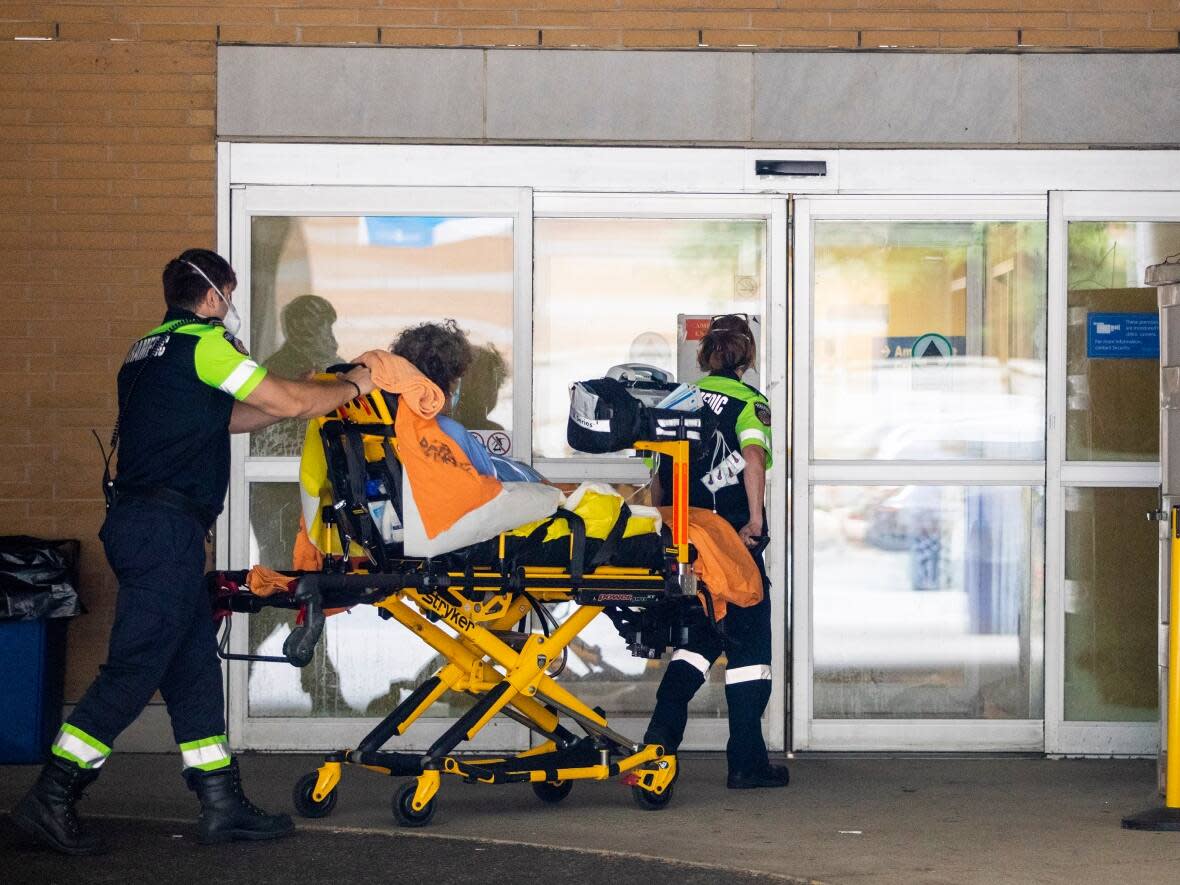Amid fears health system is buckling, Toronto hospitals to issue alerts about overcrowded ERs

Amid signs of a growing crisis in the province's health-care system, an alert went out Thursday that the emergency department at Toronto General Hospital was at capacity — and that doctors should send their patients elsewhere.
The University Health Network (UHN) sent out the alert urging that patients be sent to other emergency rooms and specialty clinics, or that they be sent home if possible.
Erin O'Connor, UHN's deputy medical director of emergency departments, told CBC Toronto this kind of alert has been used before for intensive care units, but will now be used to report on the situation in emergency departments at the network's hospitals.
"The intent is really to give everyone else in the organization situational awareness about what's happening in the emergency department," O'Connor said Friday.
"There were patients waiting on EMS stretchers with our paramedic colleagues that we weren't actually able to move," she added.
Emergency beds were already full with patients who should have been moved to other departments, O'Connor said. The problem was, those other departments were also full, leaving no beds available to new emergency patients.

Emergency departments across the province have been facing capacity issues for months, partly due to staff shortages. Earlier this week, Toronto's Hospital for Sick Children reported wait times of up to 12 hours due to unseasonably high patient volumes.
Experts say these ongoing problems are getting worse and they're concerned about the strain on the health-care system moving into the winter months with flu season, a possible surge in COVID-19 cases and other respiratory illnesses potentially overwhelming hospitals.
"This is sort of the canary in the mine shaft," said Natalie Mehra, executive director of the Ontario Health Coalition, a network of community organizations that aims to advocate for and protect the province's health-care system.
"If it's bad like this in October, when we get into November, December, January … I think everyone is really, really alarmed at what is going to happen," she said.

"How are we going to hold it together?"
All areas of health care are facing the same capacity problems and staff shortages, which in turn, backs patients up into emergency departments, she told CBC Toronto.
"You go to an emergency department and you're waiting ... 20 to 30 hours for admission to a bed in a brightly lit hallway with no privacy," Mehra said.
"It's horrible."
She said the provincial government is to blame for the current health-care crisis.
"It's been created by policy decisions to downsize hospitals beyond any reason or evidence and then a pandemic that has put ... unprecedented stresses on [the system]."
Steps taken to support ERs, province says
In an email statement provided to CBC Toronto, the Ontario Ministry of Health said it has taken a number of steps to support emergency rooms across the province.
Those measures include a funding incentive program meant to help reduce the length of patient stays and programs that aim to provide more timely care to patients outside of emergency departments, such as virtual access to doctors.
But Cathryn Hoy, president of the Ontario Nurses' Association, agreed that the government is at fault.
"I can assure you people are dying because of the lack of resources in health care right now and the government's doing absolutely nothing about it," she told CBC Toronto.

Capacity issues at emergency departments are a direct result of the ongoing nursing shortage, Hoy said.
"The government has done absolutely nothing to try and retain the nurses that they have," she said.
Hoy also pointed to Bill 124, a controversial piece of provincial legislation that limits the pay of some public sector workers, as just one of the reasons many nurses are retiring or leaving for work in other jurisdictions.
"There needs to be some respect," Hoy said. "I honestly don't understand why the government will not repeal that bill and treat nurses like they should."
The Ford government has argued Bill 124 is a temporary measure that's necessary to slow the growth of public sector wages and does not infringe upon workers' constitutional right to collective bargaining.
O'Connor confirmed a shortage of nursing staff contributed to the situation at Toronto General Hospital.
That situation has improved slightly since Thursday.
"It's somewhat better than it was," O'Connor said. "But … the situation hasn't been resolved."


